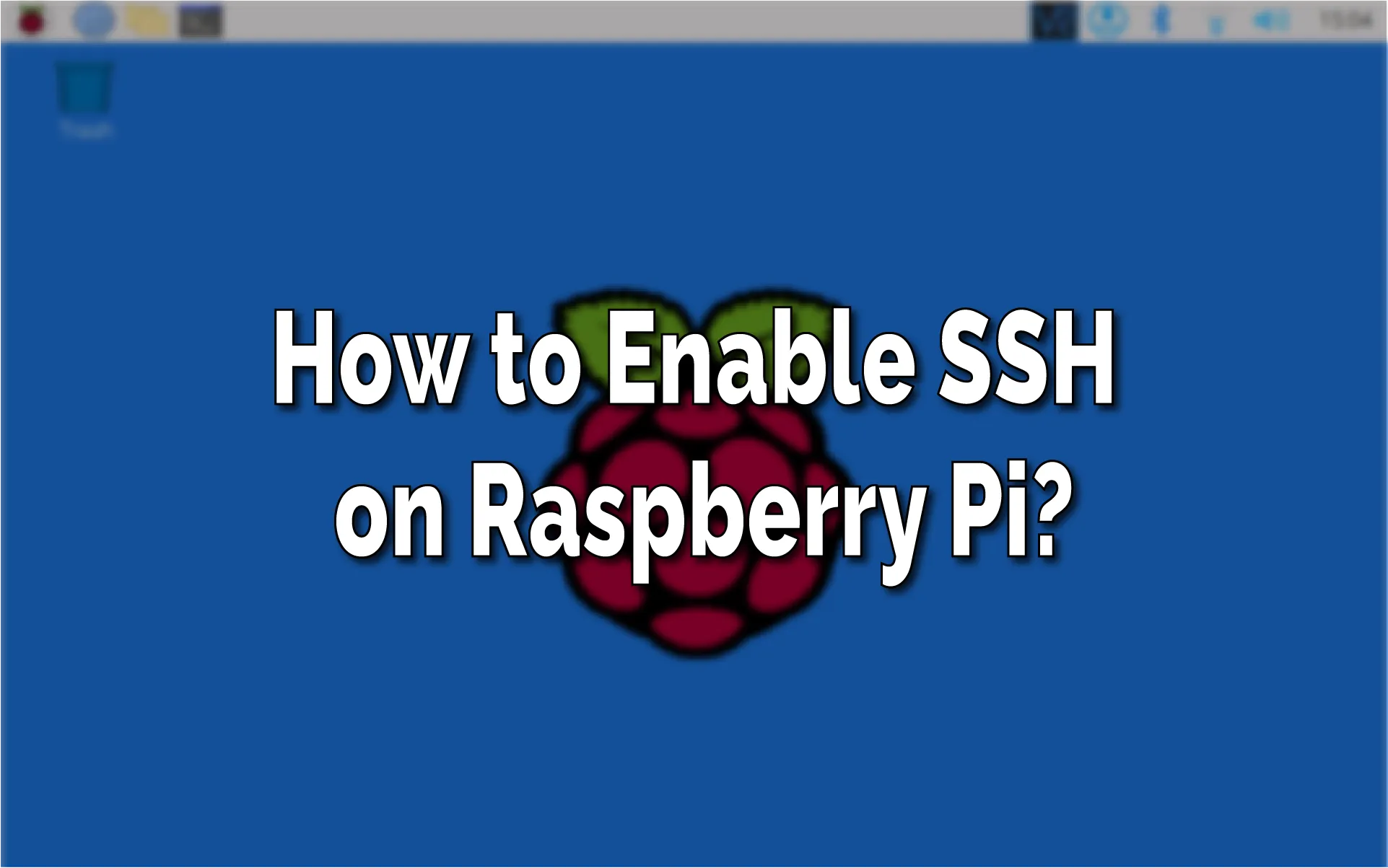Are you looking for a seamless way to manage your Raspberry Pi devices remotely while maintaining top-notch security? The RemoteIoT platform offers an innovative solution by integrating SSH key management, making it easier than ever to control your devices from anywhere in the world. With its user-friendly interface and robust features, this platform is a game-changer for tech enthusiasts, developers, and businesses alike. Whether you're managing a single Raspberry Pi or an entire fleet of IoT devices, RemoteIoT ensures that your operations remain efficient, secure, and cost-effective.
RemoteIoT platform SSH key integration provides a secure and efficient method for accessing your Raspberry Pi devices without the need for passwords. By leveraging SSH keys, you eliminate the risks associated with traditional password-based authentication, such as brute-force attacks or unauthorized access. This is particularly beneficial for Raspberry Pi users who rely on their devices for various projects, from home automation to industrial applications. The platform’s ability to manage SSH keys for free ensures that even hobbyists and small-scale developers can take advantage of enterprise-grade security without breaking the bank.
For those unfamiliar with SSH keys, they are cryptographic keys used to authenticate users and devices securely. By using the RemoteIoT platform, you can generate, store, and manage these keys effortlessly, ensuring that your Raspberry Pi devices remain accessible only to authorized users. This not only enhances security but also simplifies the process of remote management. With its free tier for Raspberry Pi users, RemoteIoT democratizes access to advanced IoT management tools, empowering innovators to focus on their projects rather than worrying about security or connectivity issues.
Read also:Discover The Inspiring Journey Of Elisabeth Shue From Hollywood Star To Role Model
Table of Contents
- What is RemoteIoT Platform SSH Key?
- How Does RemoteIoT Platform Enhance Raspberry Pi Security?
- Why Should You Use SSH Keys for Your Raspberry Pi?
- Can RemoteIoT Platform Really Be Free for Raspberry Pi?
- How to Set Up SSH Keys on RemoteIoT Platform?
- Benefits of Using RemoteIoT Platform for IoT Projects
- What Are the Limitations of RemoteIoT Platform?
- How to Troubleshoot SSH Key Issues on RemoteIoT Platform?
- RemoteIoT Platform SSH Key Free Raspberry Pi Use Cases
- Frequently Asked Questions About RemoteIoT Platform
What is RemoteIoT Platform SSH Key?
The RemoteIoT platform SSH key is a critical component of the platform's security infrastructure. It allows users to authenticate their devices securely without relying on passwords. SSH keys consist of a public key and a private key, where the public key is stored on the server (in this case, the Raspberry Pi), and the private key remains with the user. When a connection is initiated, the system verifies the keys to ensure that only authorized users can access the device.
This method of authentication is far more secure than traditional password-based systems. Passwords can be guessed, stolen, or cracked through brute-force attacks, whereas SSH keys are nearly impossible to decipher without the corresponding private key. The RemoteIoT platform simplifies the process of generating and managing these keys, making it accessible even for users with minimal technical expertise.
For Raspberry Pi users, the integration of SSH keys into the RemoteIoT platform means that they can manage their devices remotely with confidence. Whether you're deploying a home automation system or monitoring industrial sensors, the platform ensures that your devices remain secure and accessible at all times.
How Does RemoteIoT Platform Enhance Raspberry Pi Security?
Security is a top priority for any IoT project, and the RemoteIoT platform excels in this area by offering robust SSH key management. By eliminating the need for passwords, the platform reduces the risk of unauthorized access and brute-force attacks. This is especially important for Raspberry Pi devices, which are often used in environments where physical security may be limited.
In addition to SSH key management, the RemoteIoT platform provides features such as real-time monitoring, device grouping, and access control. These tools allow users to manage their devices more effectively while maintaining a high level of security. For example, you can create user roles and permissions to ensure that only authorized personnel can access specific devices or perform certain actions.
Furthermore, the platform’s encryption protocols ensure that all data transmitted between your devices and the RemoteIoT servers is secure. This is particularly important for sensitive applications, such as healthcare or financial services, where data privacy is paramount.
Read also:Discovering The Journey Of Jeffrey Brezovar A Comprehensive Guide
Why Should You Use SSH Keys for Your Raspberry Pi?
Using SSH keys for your Raspberry Pi offers several advantages over traditional password-based authentication. First and foremost, SSH keys provide a higher level of security. Since the private key is required to authenticate, it is virtually impossible for an attacker to gain unauthorized access without it.
Another benefit of SSH keys is convenience. Once the keys are set up, you can access your Raspberry Pi devices without entering a password every time. This is particularly useful for automating tasks or scripting workflows, as it eliminates the need for manual intervention.
Finally, SSH keys are more scalable than passwords. If you manage multiple Raspberry Pi devices, you can use the same SSH key across all of them, simplifying the management process. The RemoteIoT platform makes this even easier by providing a centralized dashboard for managing your keys.
Can RemoteIoT Platform Really Be Free for Raspberry Pi?
One of the most appealing aspects of the RemoteIoT platform is its free tier for Raspberry Pi users. But can a platform offering such advanced features really be free? The answer is yes, and here's why. The platform offers a basic set of features at no cost, allowing users to manage a limited number of devices and SSH keys without any charges.
For hobbyists and small-scale developers, the free tier is more than sufficient to meet their needs. It includes essential features such as SSH key management, remote access, and basic monitoring. If you require more advanced features, such as unlimited devices or premium support, you can upgrade to a paid plan.
The free tier is part of RemoteIoT's commitment to making IoT management accessible to everyone. By offering a no-cost option, the platform encourages innovation and experimentation, particularly among Raspberry Pi users who may be working on personal projects or educational initiatives.
How to Set Up SSH Keys on RemoteIoT Platform?
Setting up SSH keys on the RemoteIoT platform is a straightforward process that can be completed in just a few steps. First, log in to your RemoteIoT account and navigate to the SSH key management section. From there, you can generate a new key pair or upload an existing one.
Once the keys are generated, you’ll need to copy the public key and add it to your Raspberry Pi device. This can be done by editing the authorized_keys file on the device. After the public key is added, you can connect to your Raspberry Pi using the private key stored in your RemoteIoT account.
The platform provides detailed instructions and troubleshooting tips to help you through the process. If you encounter any issues, you can reach out to their support team for assistance. With SSH keys set up, you can enjoy secure and seamless remote access to your Raspberry Pi devices.
Benefits of Using RemoteIoT Platform for IoT Projects
The RemoteIoT platform offers numerous benefits for IoT projects, particularly those involving Raspberry Pi devices. One of the key advantages is its ease of use. The platform’s intuitive interface makes it simple to manage devices, SSH keys, and user permissions, even for users with limited technical expertise.
Another benefit is scalability. Whether you’re managing a single Raspberry Pi or an entire network of IoT devices, the platform can accommodate your needs. It also supports integration with other tools and services, allowing you to build a comprehensive IoT ecosystem.
Finally, the platform’s focus on security ensures that your devices and data remain protected at all times. With features such as SSH key management, encryption, and access control, you can trust that your IoT projects are in safe hands.
What Are the Limitations of RemoteIoT Platform?
While the RemoteIoT platform offers many advantages, it’s important to be aware of its limitations. For example, the free tier has restrictions on the number of devices and features available. If you require more advanced capabilities, you’ll need to upgrade to a paid plan.
Additionally, while the platform is highly secure, it’s still important to follow best practices for IoT security. This includes regularly updating your devices, using strong passwords, and monitoring for suspicious activity.
Despite these limitations, the RemoteIoT platform remains a powerful tool for managing Raspberry Pi devices and other IoT projects. Its combination of security, ease of use, and affordability makes it an excellent choice for both beginners and experienced users.
How to Troubleshoot SSH Key Issues on RemoteIoT Platform?
If you encounter issues with SSH keys on the RemoteIoT platform, there are several steps you can take to troubleshoot the problem. First, verify that the public key has been correctly added to your Raspberry Pi device. Check the authorized_keys file to ensure that the key is present and formatted correctly.
Next, ensure that the private key stored in your RemoteIoT account matches the public key on your device. If the keys do not match, authentication will fail. You can regenerate the key pair if necessary and update both the public and private keys.
If the issue persists, consult the platform’s documentation or contact their support team for assistance. They can help you identify and resolve any problems, ensuring that your SSH keys are functioning as intended.
RemoteIoT Platform SSH Key Free Raspberry Pi Use Cases
The RemoteIoT platform is versatile and can be used in a variety of Raspberry Pi projects. For example, it’s ideal for home automation systems, where users can remotely control smart devices such as lights, thermostats, and security cameras. The platform’s SSH key management ensures that these devices remain secure and accessible.
Another use case is in educational settings, where students and educators can use the platform to manage Raspberry Pi devices for coding and robotics projects. The free tier makes it an affordable option for schools and universities.
Finally, the platform is well-suited for industrial applications, such as monitoring sensors and controlling machinery. Its robust security features and ease of use make it a reliable choice for businesses of all sizes.
Frequently Asked Questions About RemoteIoT Platform
Here are some common questions users have about the RemoteIoT platform:
- Is the RemoteIoT platform compatible with all Raspberry Pi models? Yes, the platform supports all Raspberry Pi models, ensuring broad compatibility.
- Can I use the RemoteIoT platform for non-Raspberry Pi devices? Absolutely! The platform supports a wide range of IoT devices, not just Raspberry Pi.
- How secure is the RemoteIoT platform? The platform uses advanced encryption and SSH key management to ensure maximum security.
By addressing these questions, the RemoteIoT platform demonstrates its commitment to transparency and user satisfaction. Whether you’re a beginner or an experienced developer, the platform offers the tools and support you need to succeed.

